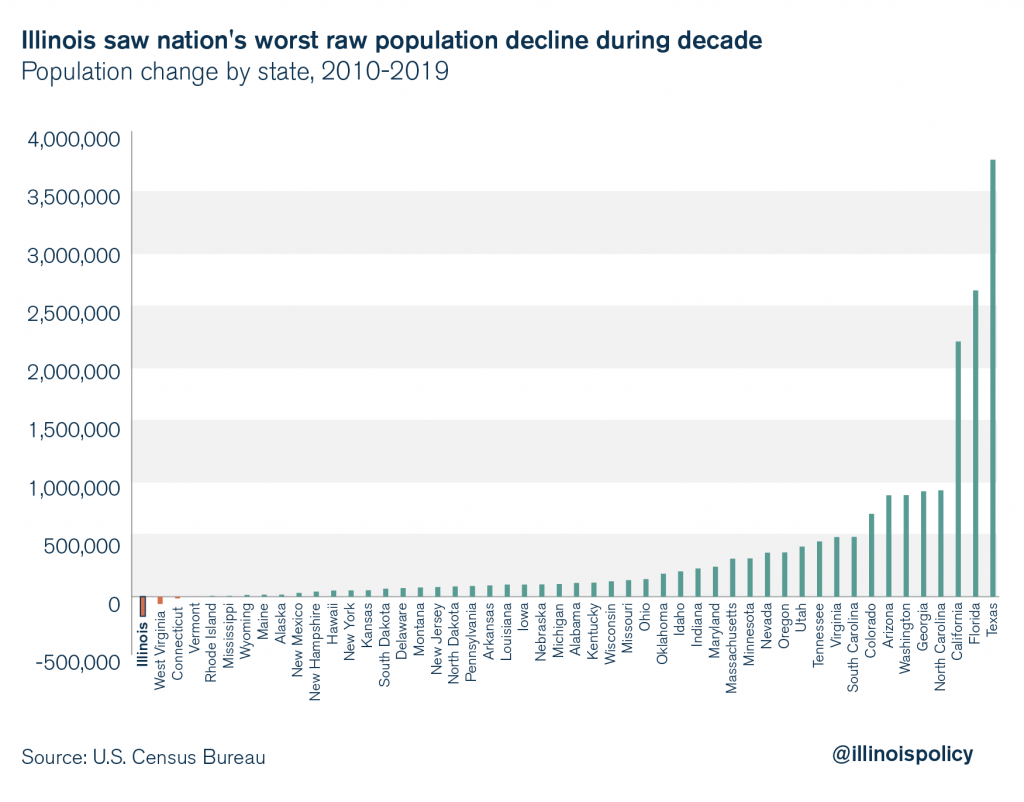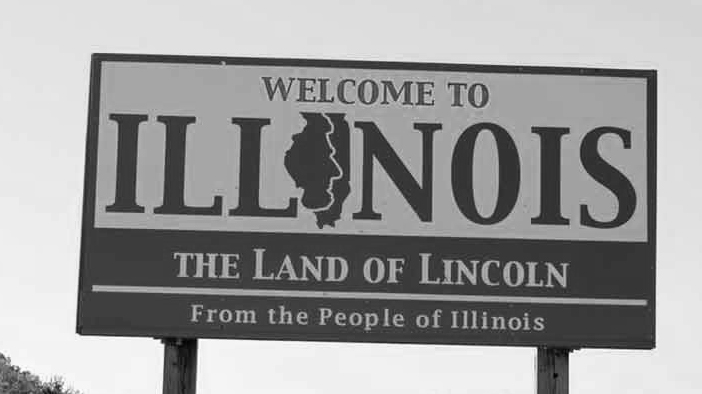Illinois Policy published a story about Iowa’s neighbor that doesn’t shine a bright light on the Land of Lincoln.
The headline?
“Illinois saw nation’s worst population loss during the decade”
The first sentence?
“Illinois suffered its sixth consecutive year of population decline in 2019, driven enetirely by residents leaving for other states.”
According to the story, data released by the U.S. Census Bureau Dec. 30 showed the state’s population dropped by 168,700 people from 2010-2019, which is the largest raw decline of any state and more than the entire population of Naperville, the state’s third-largest city.

Bobby Schilling is a former Congressman from Illinois who moved to Iowa. He’s currently running for Congress in Iowa’s Second Congressional District.
“We had several things that brought us here,” he said of his move from Illinois to Iowa. “But the biggest one was the property tax increase that we took on our commercial property.”
Schilling said he had a property assessed at $206,000. He put $175,000 into it and the taxes went from $6,200 to $19,400. It was in some ways the straw that broke the camel’s back.
“There was a lot of handwriting on the wall because Illinois is being controlled by liberal Democrats throughout the entire state with super majorities in the House and the Senate,” Schilling said.
Illinois will raise its minimum wage beginning today. A kid out of high school, Schilling said, with no training or anything, will be making $10/hour by the end of June.
“What we’re doing now is, we’re in the process of changing hours and going to a bunch of automation,” he said. “It’s sad because it’s going to put a lot of folks out of work. It’s pretty frustrating just having to deal with it. I’d call it communistic.”
Schilling gave an example of how Illinois works. One of his restaurants has a liquor license. It was requested that a photo of the license be sent to the state. They took a picture of the wrong license.
“Instead of saying anything to us, eight days after our license had expired they send an inspector from the liquor commission out to the restaurant,” Schilling said.
She found a couple small things, but said she was really there to get their license from the state. Schilling said they had the license from the city on the wall and it was issued a month and a half ago.
“She goes, well, that’s not my job, I can’t do that for you,” he said. “We get the photo and send them the right one, they had already cashed our check…two days later I get a thing in the mail saying in the spirit of compromise, I can send them $500 and they’ll just forget about all this stuff or I can make a trip to Chicago or Springfield, which is three hours each way, and then they might reduce the fine. Basically they’re saying send me $500 and you don’t have to drive to Springfield or Chicago.
“It’s just not a friendly state to be doing business in.They’re going to see a lot of business close with this $15/hour thing.”
Schilling predicted more of the same for Illinois in terms of population.
“I think that the mass exit in Illinois is just at its beginning,” he said. “The sad thing is your bigger companies like Pizza Hut and things like that can’t adjust quick enough with their hours.”
Currently he has a restaurant open Monday-Saturday from 11 a.m. until 9 p.m., 10 p.m. on Friday and Saturday. It is closed on Sunday. Schilling said Illinois is doing this to increase payroll taxes since the state is bankrupt.
His restaurant, he said, will shut down lunch on Monday, Tuesday, Wednesday and Thursday.
“It’ll cut out of my payroll about $25,000-$30,000 of payroll,” he said. “Then, Friday and Saturday I’ll open up for lunches. But I’m here to stay in business. I didn’t open up to fail. What they’re doing is, they’re trying to force failure on businesses if they can’t adjust.”
Schilling said he has employees who have worked there for three or four years making $12 or $13/hour.
“In four years, kids will be starting out at $15/hour,” he said. “What happens to the guy who was making $12 or $13/hour? If I bring them up to $15/hour, they’ll be pissed — shouldn’t they be making $20/hour? It’s true communism because, if you think about it, you have a restaurant and if everybody in the store is making $15/hour, you can’t afford to pay people more money. A guy who doesn’t even know how to push a broom will be making the same amount as the guy making pizzas, running them, bagging them, running the cash register, taking orders — it’s a disaster.”
Schilling is able to offer firsthand experience of what big government policies like those of Illinois do to a business and an individual. It’s a benefit of having lived in the Land of Lincoln.
“We’re even looking now at all of our prep work,” he said. “We’re making dough, grinding cheese and sauce and sausage, we’re looking at doing that all on the Iowa side of the river and commuting it to the store. That will keep cost down. All of our future stores are coming to Iowa. We won’t have any more stores in Illinois.
“It’s sad for Illinois.”












